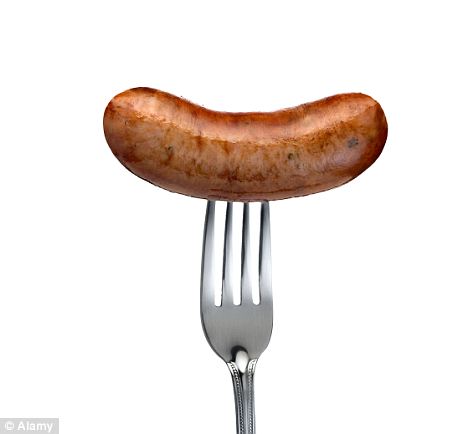
150 lambs arrived at Randolphs Farm last week and are happily grazing the plentiful grass over there. Less welcome are the moles which have pitched up once again. Having blitzed them hard in the spring, we had rather hoped to have seen the last of them. These latest arrivals are an energetic bunch which are busily digging in and making themselves thoroughly at home. I have put out a call to Richard the mole man, who will hopefully come soon to work his magic before they colonise the whole field, as they did last winter.
The media frenzy following last week’s report from the World Health Organisation’s International Agency for Research on Cancer (IARC), suggesting eating just 50g of processed meat a day can increase the risk of bowel cancer by 18 per cent, inspired me to take a straw poll.
I must admit my poll was not exactly scientific, or thorough, but suffice to say it gave me an interesting view as to the discerning public’s reaction to this news story.
I visited three farm shops, and two high street butchers. I also listened to shoppers in the fresh meat and processed meat isles in Tesco, and I popped into Lidl. My purpose was to find out if local punters had changed their shopping habits, or if the IARC report was discussed amongst themselves or with the butchers.
Out of the farm shops and high street butchers, one reported that a regular customer had mentioned the report, and on the strength of it had ordered an extra large joint of beef for the weekend. Another said a gentleman had enquired if the butcher knew how much carcinogen he would gain from the leg of lamb he had just bought!
My foray into Tesco resulted in overhearing a couple discussing how many rashers of bacon they would have to eat to match the 40 cigarettes they both smoked daily. And I overheard a mother telling her young son that their visits to Mc Donald’s would now have to be restricted to twice a week, instead of their regular four.
At the rather long checkout in Lidl, there was quite a debate on the subject. I got the feeling that few if any were about to change their eating habits. The consensus of opinion was that it would not be long before this advice is turned on its head and the scientists come up with a very different scenario.
The mainstream media have gone to town and sensationalised this story. The Sun declaring “bacon and sausages are as bad as plutonium”, and the Guardian that “processed meat ran alongside smoking as a cause for cancer”. The BBC thoroughly overplayed the story, dragging into their studios anyone prepared to blame livestock farmers for trying to wipe out the human race!
As reported in the Farmers Weekly, the real problem with the report is that while it assesses so-called “cancer hazards”, it makes no attempt to quantify the risk. It simply lumps processed meat and red meat into certain categories, along with more than 900 other products and activities.
Statistics show that an average 50-year-old man would have a 0.68% risk of bowel cancer in the next 10 years. And eating processed meat increases that to 0.8% - a rise of 0.12%. On the other hand, smoking just three cigarettes a day increases the chance of lung cancer – the biggest killer- by 600%. Somewhat different from eating a little more processed meat.
The average daily consumption of processed meat in the UK is just 17g, this is well below the IARC’s perceived threshold. It was interesting to note that the rates of bowel cancer were similar in both vegetarians and meat-eaters.
Healthy eating is a question of consuming a balanced diet, including a variety of foods, and as the late Dr de Winter advised, ‘everything in moderation’. Over consumption of anything is inadvisable and clearly unhealthy. A modicum of common sense by consumers would it seems, save the medical profession and scientists a shed load of time and money.
The problem is not so much what we eat but how much we eat, and increasingly how little exercise we take. The combination is proving to be costly to the nation, and increasingly lethal. This disease of the 21 Century needs to be addressed sooner than later.

 RSS Feed
RSS Feed